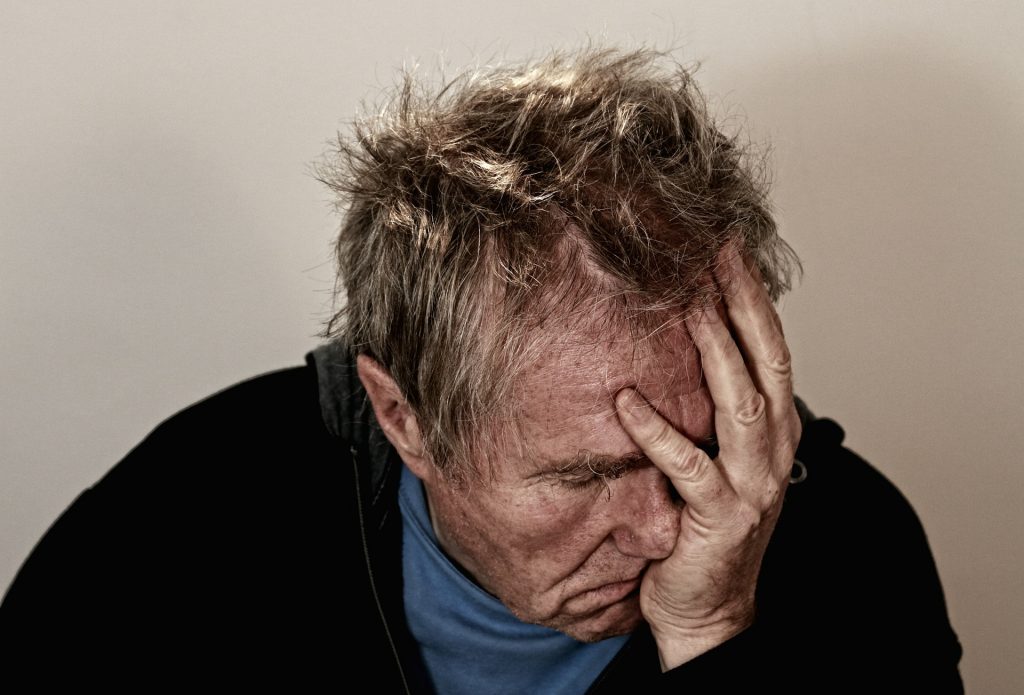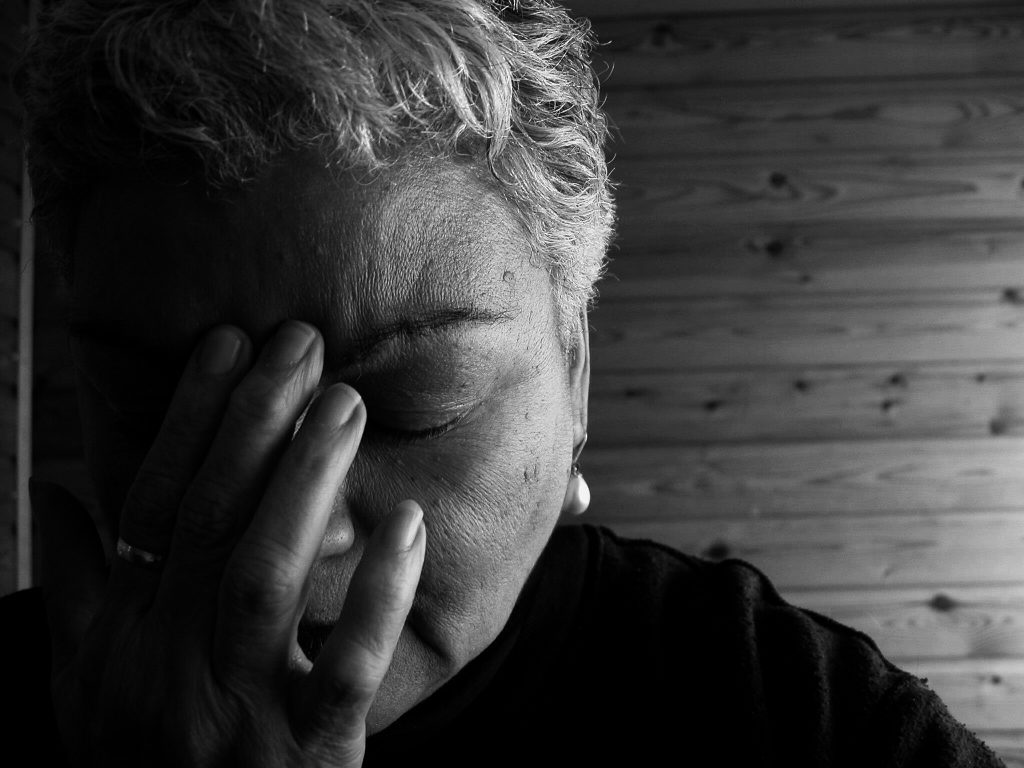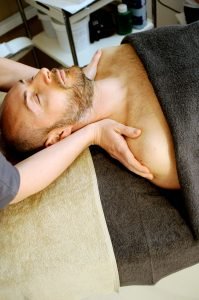Subscribe to the Newsletter
If you are interested in understanding how Traditional Chinese Medicine can improve your life sign up to my newsletter for the latest updates.

Key Learning Points
In traditional Chinese medicine, treatment for ‘depression’ is a short-hand for a wide range of syndromes. Syndromes are descriptions of conditions in Chinese medicine.
Before starting treatment for depression, the acupuncturist would carefully take your case. What that means is you tell him your problems.
Then he would:
(There’s more about this further down the page.)
To help him plan your treatment he would then diagnose your condition in terms of syndromes. You could easily have more than one syndrome.
The following are only examples of what might be diagnosed. There are many possibilities and it’s not a complete list.
By the way, if you’re unfamiliar with Chinese medicine, the list won’t mean much, but still, here it is. In most cases by clicking on the syndrome you get to another page which explains it:
In addition, if you were in China you might need ‘re-education’. In the West we might call this counselling, but in the past some might have described it more like brain-washing. To be fair, however, the aim was to make society work better, and only secondarily, perhaps, to control dissent.
As you can see from the above list, there are many possibilities. Each requires a different acupuncture strategy, with different points.
Of course, the personalities of the patient and acupuncturist matter, but probably more in the West than the East, where the authority and skills of the acupuncturist matter more.
Still, if the diagnosis is correct and the acupuncture treatment for depression is performed properly, the syndromes in question should be put right, together with the ‘depression’.
For more on this click on acupuncture for depression points.
Qi stagnation is very common in depression. You can read my book about it below.
If your condition is recent, mild, and easy to diagnose in Chinese Medicine, then the correct ‘acupuncture for depression’ treatment works fast: possibly very fast – in minutes perhaps.
What if you’ve had depression for years, been on many drugs, seen many specialists, and you feel suicidal? Here acupuncture for depression like yours will probably work only slowly. That’s not to say it won’t work, but it may take at least a year to see lasting progress.
But let’s not get gloomy.
The problem is this. There isn’t a specific acupuncture for depression treatment that would apply to everyone with depression. Even Western medicine chooses the medication according to the diagnosis, so nothing new there.
The difference is that in reaching the diagnosis in Chinese medicine, virtually every known symptom and factor about the patient might be needed to reach a diagnosis: probably far more than in Western Medicine. Also, you can only understood one symptom in relation to other symptoms: they aren’t separate – they work all together making the patient unique.
Been depressed? Not fun, is it? Admittedly few of us die from depression, at least compared to heart, circulatory and respiratory diseases. Still, depression and anxiety-like disorders affect 1 in 6 of us every year. That could be every sixth person in the street!
At least 2 out of every 100 people you know probably suffer from depression, and if anxiety is included, it’s up to 1 in 10 for men, and over a lifetime, it’s one in five for women. That’s a lot of misery.
And it’s costly too. The cost of depression to the economy exceeds that of high blood pressure and diabetes put together, and it affects relationships, work, and personal self-worth.
Acupuncture for depression, when used appropriately, could re-energize so many lives.
Western medicine diagnoses major depression when at least five out of nine possible symptoms occur daily during a given two-week period and are different from previous behaviour and functioning.
There has to be, in addition to five or more of the conditions listed below, a state of depressed mood every day, with loss of pleasure in almost all or all activities.
Obviously, these symptoms should not arise from taking drugs or from a medical condition. Also, the symptoms must interfere or cause distress in terms of work or friendships (for example).
Like buses, problems don’t usually come alone. They come hand-in-hand with other problems, or one after the other. (In fact, in the USA, they did a National Co-morbidity Survey which concluded that having just one mental disorder was less common than having at least two together.) If depression comes with other problems, it may be harder to treat, whatever therapy is used.
For example, depression often accompanies dependence on alcohol, or panic disorders, or anxiety disorders, or what is called ‘borderline personality’ disorder.
Also, if you have a serious or chronic medical condition like cancer or stroke, diabetes or prolonged pain, you are more likely to suffer from depression.
When there is this co-morbidity, it could be because:
Why do people get depressed, and when might acupuncture treatment for depression work?
There are lots of scientific theories about the causes of depression and there are lots of possible causes in Chinese medicine too. Few patients have just one absolutely clear cause. Often there is both a psychological and a biological cause.
First, what does Western orthodox medicine suggest might be the causes of depression?
There’s a difference between how men and women deal with depression.
Drug treatment for depression means anti-depressants like Tricyclic medications, SSRIs and (still) MAOI (Monamine oxidase inhibitors) antidepressants. All have side-effects, though so far SSRIs seem to have less of them.
For severe cases, ECT – electro-convulsive therapy is still used in some countries.
Cognitive therapy is the treatment of choice, although as explained above, other forms of psychological counselling have their part to play.
Often a combination of approaches is used.
For more on the psychological aspects check here.

Results of Orthodox Treatment for depression?What are the results from treatment with ‘orthodox’ medicine? Frankly, not too bad,
|
BUT! Not many people like it. They find the medication has unpleasant side-effects or they drop out of treatment before it completes. Others apparently recover then relapse unexpectedly.
So, although it seems to work, its reputation long-term is not good. The USA National Institutes of Mental Health researched treatment which showed that between one-third and two-thirds of participants had no real symptom relief.
(Just to repeat: if the original condition was mild, and had persisted for less than two years, then the right medication might be very effective and not lead to relapse. That still doesn’t cover the problem of the side-effects, however.)
Overall, comparisons of the results of the newer SSRIs (Selective serotonin uptake inhibitors) and the older TCAs (Tri-cyclic Antidepressants) shows that the former are about as effective as the latter. About one third of patients on them show improvements that would not have occurred while on placebo. For the second one-third of patients the drugs work about as well as placebo and for the final one-third of patients the drugs don’t work at all.
Similar analyses of results show that psychotherapy is, overall, about as effective as drug-therapy. What is more, although drugs may start to work faster, patients on psychotherapy don’t have drug-induced side-effects, they relapse less, and may be better when the reason for the depression isn’t internal. This applies if you get depressed because of work difficulties, not because of a sense of worthlessness that was there beforehand.
In the short-term, medication treatment for depression works quickly, if it works at all. (But it still takes several weeks to work, usually.)
If after a period of medication, you stop taking it because you feel better, or continue to take it in a smaller ‘maintenance’ dosage, what do surveys show you can expect?
Not so good. Up to one-third of patients who did well on initial medication fall back on continued medication. Long-term, with some drugs, the relapse rate is up to 70%. So once you have depression, it tends to recur. And cognitive or inter-personal therapy seems as good as anything at preventing relapse.

Stay in Touch!
No spam, only notifications about new articles and updates.

Book a Video consultation if you want to know more about your symptoms

Acupuncture for depression treatment starts with a diagnosis. In reaching a diagnosis, your acupuncturist would consider not just your history and symptoms, but also your skin colour (we don’t mean racial colour, but hue arising from the blood underneath), the sound of your voice, your pulse qualities, your skin odour; even previous health conditions that appeared to have no connection might be important, and so on.
People who share a Western diagnosis, such as ‘depression’, might be diagnosed with a combination of patterns of disharmony in Chinese medicine.

Each such disharmony might require a different treatment, and it’s up to the skill of the acupuncturist in preparing a treatment to prioritize and harmonize treatments to suit the patient. There’s no ‘standard’ treatment. So, there’s no straight answer to the question ‘Does acupuncture for Depression work?’
| (That makes it much more interesting for the acupuncturist of course and makes him or her possibly much more open to working with the patient anew each time. You, the patient, are never expected to be the same, requiring the same treatment as last time. You are seen as dynamic, changing, and your acupuncturist must adapt each time: much more interesting for your practitioner! The correct acupuncture for depression treatment for you is a new challenge every time.) |
Not much, as yet. It’s costly to do, takes ages, there aren’t enough people doing it, and what’s been done is in Chinese or Russian.
Still, there are abstracts of this research translated into English: they suggest that from the Western point of view, acupuncture for depressive symptoms and for depression can be effective. Possibly as effective as treatment with TriCyclic Antidepressant drugs (TCAs), but without the side-effects.
Nowadays, such drugs (ie TCAs) are being replaced by SSRIs and SNRIs, (Selective Serotonin Reuptake Inhibitors and Serotonin-Norepinephrine Reuptake Inhibitors) which don’t have such unpleasant side-effects: at least, not so far. But plenty of people are still prescribed TCAs.
Click here for an overview of research
Those Russian and Chinese trials really only tested acupuncture for ‘melancholic‘ depression. This is quite a severe form of depression, usually requiring antidepressants, psychotherapy in a supportive role, and sometimes electro-convulsive therapy, depending on which country you live in.
Also, bear in mind that to test this they had to use a strict protocol of acupuncture points, rather than adapting the treatment to the patient’s individual needs. That limits acupuncture ability to help. That’s because a strict protocol means they use the same points on everyone, whether or not a skilled acupuncturist would use them.
The symptoms of melancholic depression often include weight loss, inability to find pleasure even in positive things, sleeplessness and/or waking in the early morning, and psychomotor agitation or retardation.
(What’s Psychomotor agitation? This is when, because of mental anxiety or tension, you show unintentional or purposeless motions, like repeatedly rubbing your hands together, or picking at things, or taking off then putting on clothes, or pacing around: even chewing fingernails or lips until they bleed. Retardation is when your thinking processes slow down and you move less: you react and speak more slowly.)
Where acupuncture for depression seemed less effective (in the few trials undertaken), was with anxious and apathetic depressions or where there was psychosis.
That doesn’t mean acupuncture can’t help these conditions, but that the strict treatment protocol, with prescribed acupuncture points, that worked on melancholic depression wasn’t effective in these other kinds of depression. But then, you’d hardly expect them to, would you?
After all, if you’re making pudding, you can use fire, water, freezing, baking, stirring and whizzing (to name a few methods). But if someone said they’d tested all these and the only ones that worked were stirring and freezing, you’d be a bit surprised, until they said they were making ice-cream. So it is with depression: acupuncture protocols that work for one kind won’t necessarily work for another!
In other words, the points which work for melancholic depression aren’t the same as the points which work on anxious depression. So, really, they weren’t trying to see if acupuncture worked on other kinds of depression.
As I said earlier, the acupuncture for depression points have to be chosen according to the particular symptoms of the patient. There is no one-size-fits-all, even for melancholic depression.
As mentioned above, that means that each patient treated with acupuncture in those trials might have fared much better if acupuncture points had been chosen appropriate to the individual patient’s condition, instead of a fixed group of points, same for everyone, making results easy to compare.
Now for a bit of theory that helps you understand how you can help yourself.
From the point of view of Chinese medicine, everything we are and can know about is a form of Qi.
The word ‘depression’ suggests a lowered state of vitality, which means a lowered state of Qi.
Raising your Qi level is therefore important in nearly all forms of treatment for depression! Some forms of lowered Qi, especially those from Qi Stagnation, get depressed because there are two warring factors at work in your mind or body.
The Qi Stagnation type of depression is like that. Your body goes into a state of civil war, lowering your Qi. If that internal ‘struggle’ can be resolved, even temporarily, (acupuncture is very good at this!) then you may be able to stand back and reassess your situation.
More important, you’ll be more relaxed and you’ll certainly have more energy!
If Qi is depressed or deficient, there are many ways to raise it (assuming it’s not due to Qi Stagnation, see above, or as described in my book, below).
Here are some of the best ways you can give yourself a treatment for depression:

“If ever tempted by depression I repeat three things to myself: I am an Englishwoman. I was born in wedlock. I am on dry land.” Blanche Warre-Cornish



Why You get Nervous Stomach Anxiety and How to Handle It. Acupuncture has great ways to help.
Subscribe to the Newsletter
If you are interested in understanding how Traditional Chinese Medicine can improve your life sign up to my newsletter for the latest updates.
Subscribe to the Newsletter
If you are interested in understanding how Traditional Chinese Medicine can improve your life sign up to my newsletter for the latest updates.